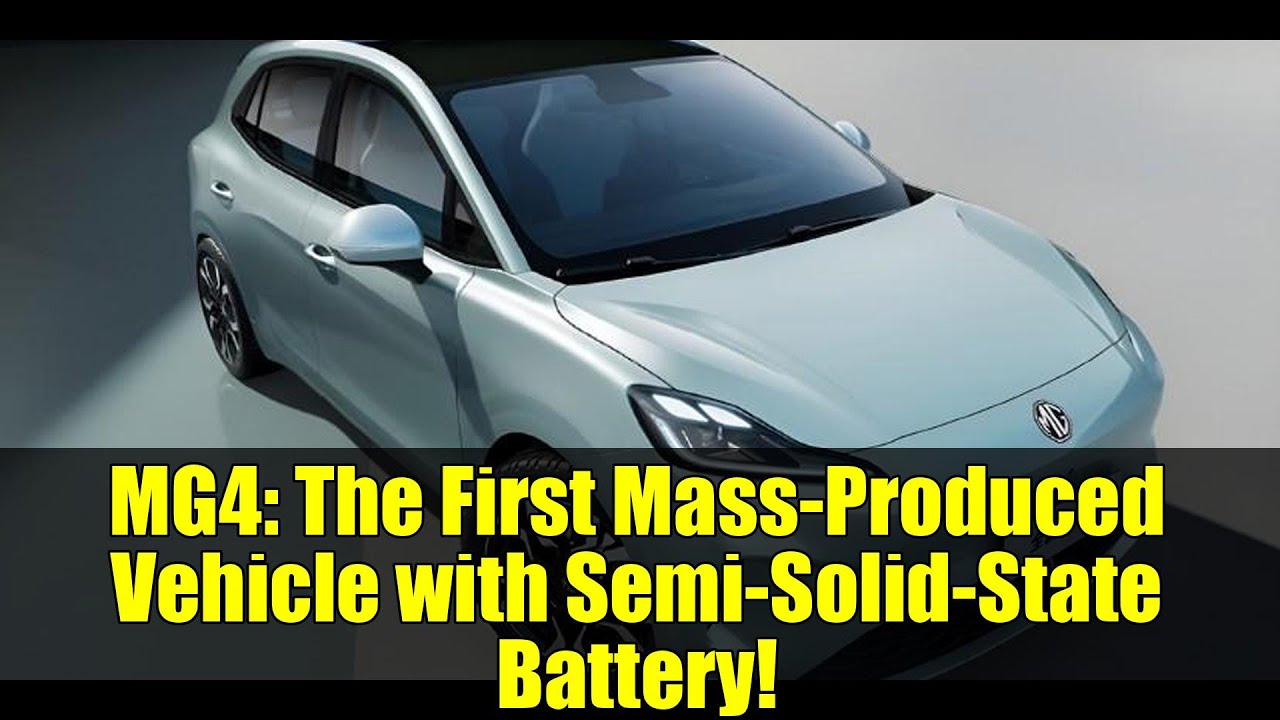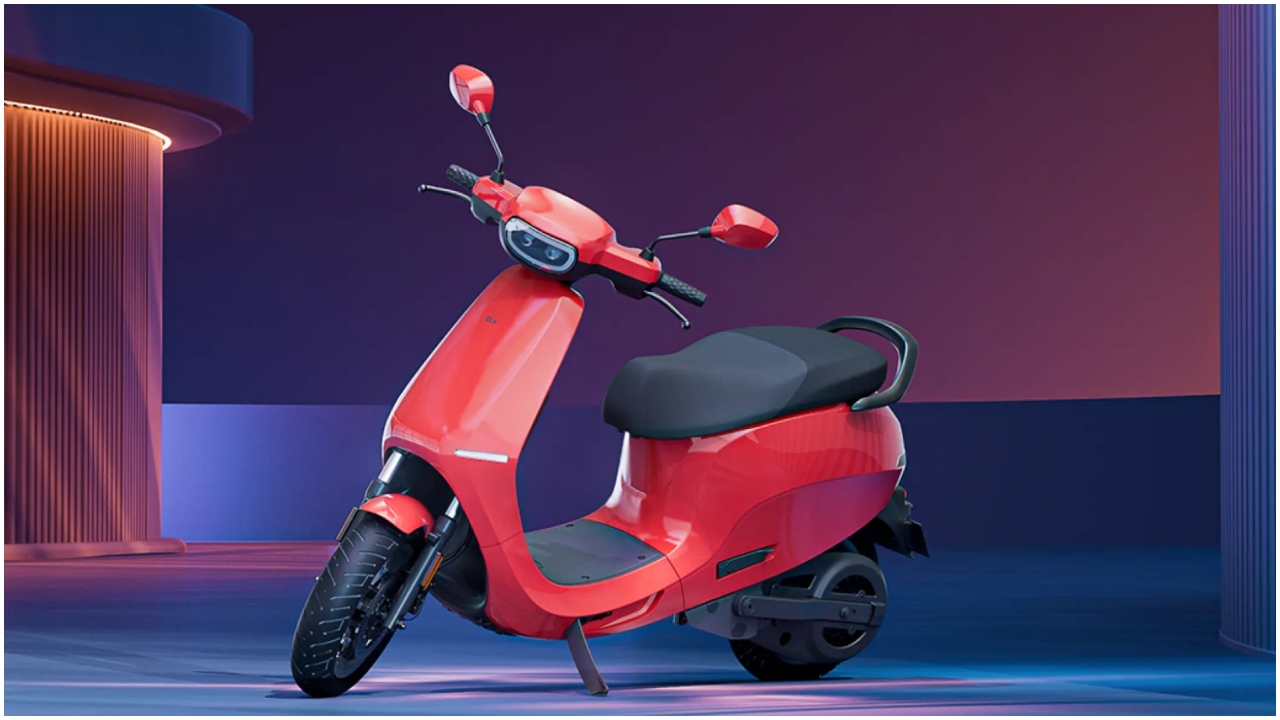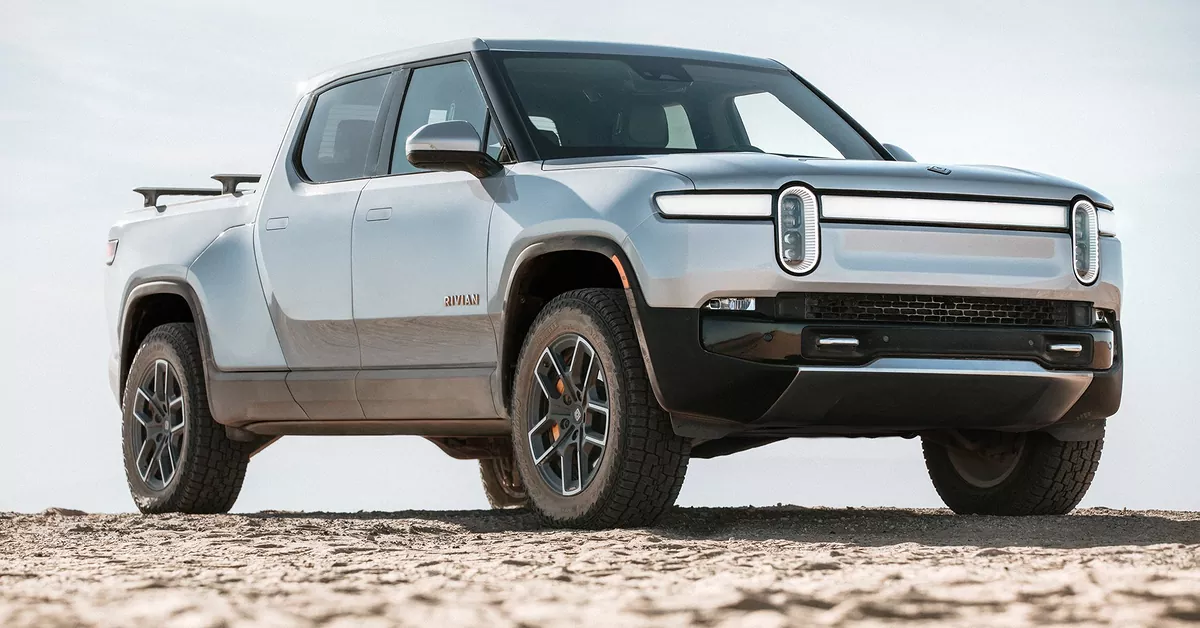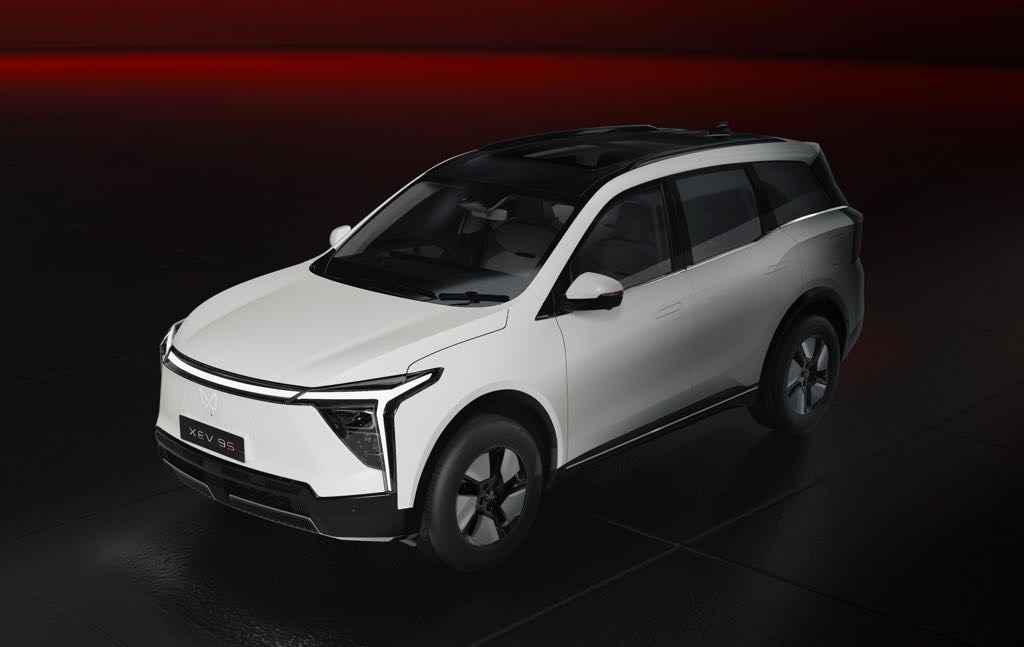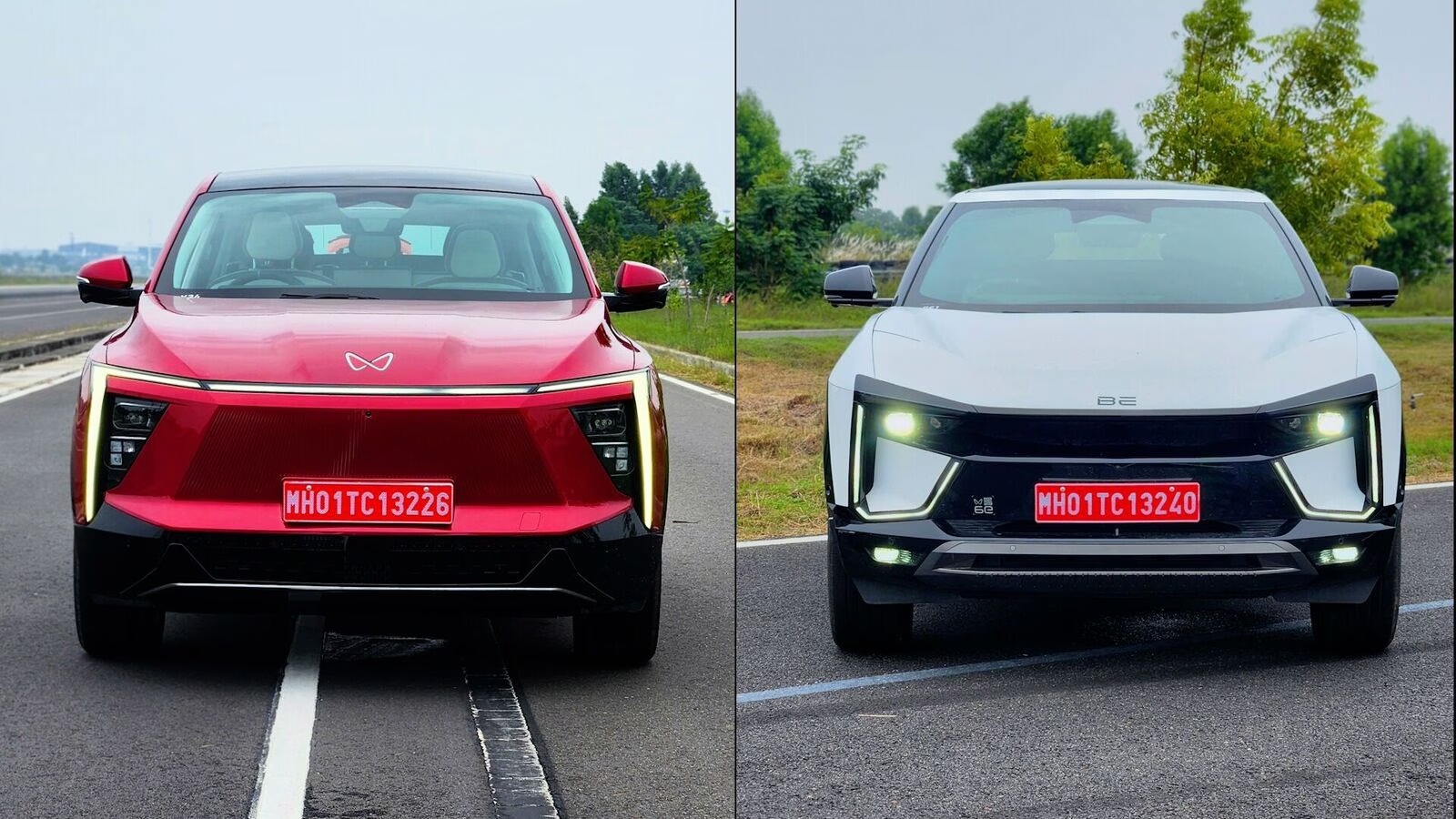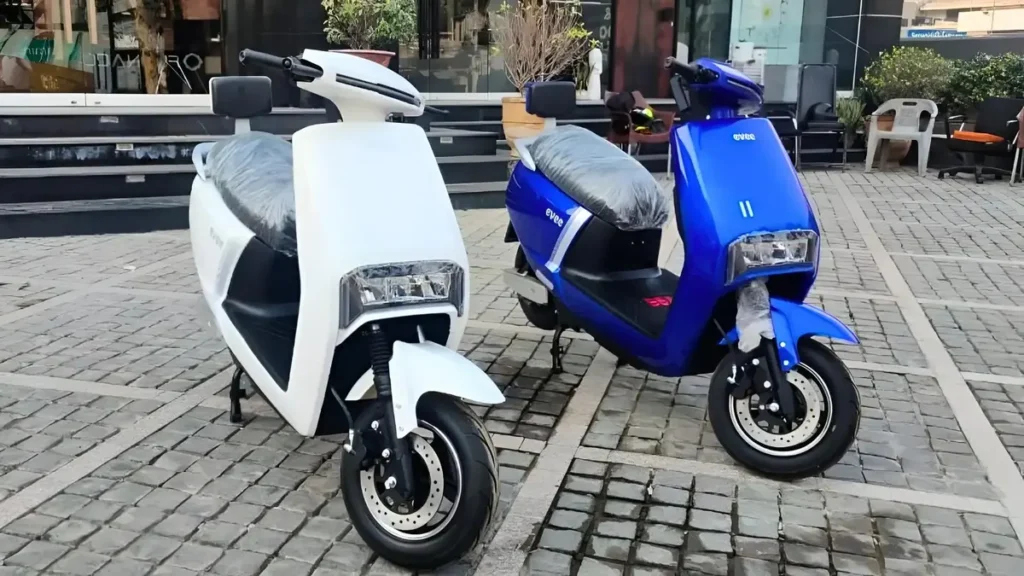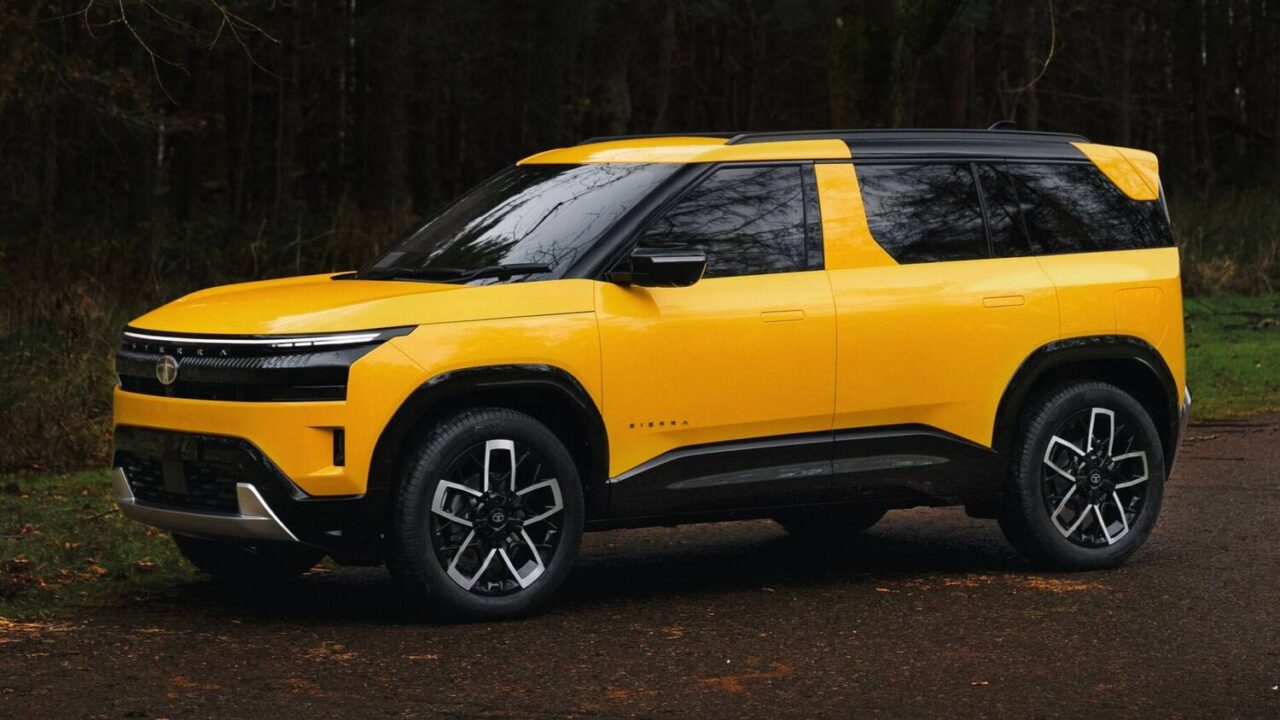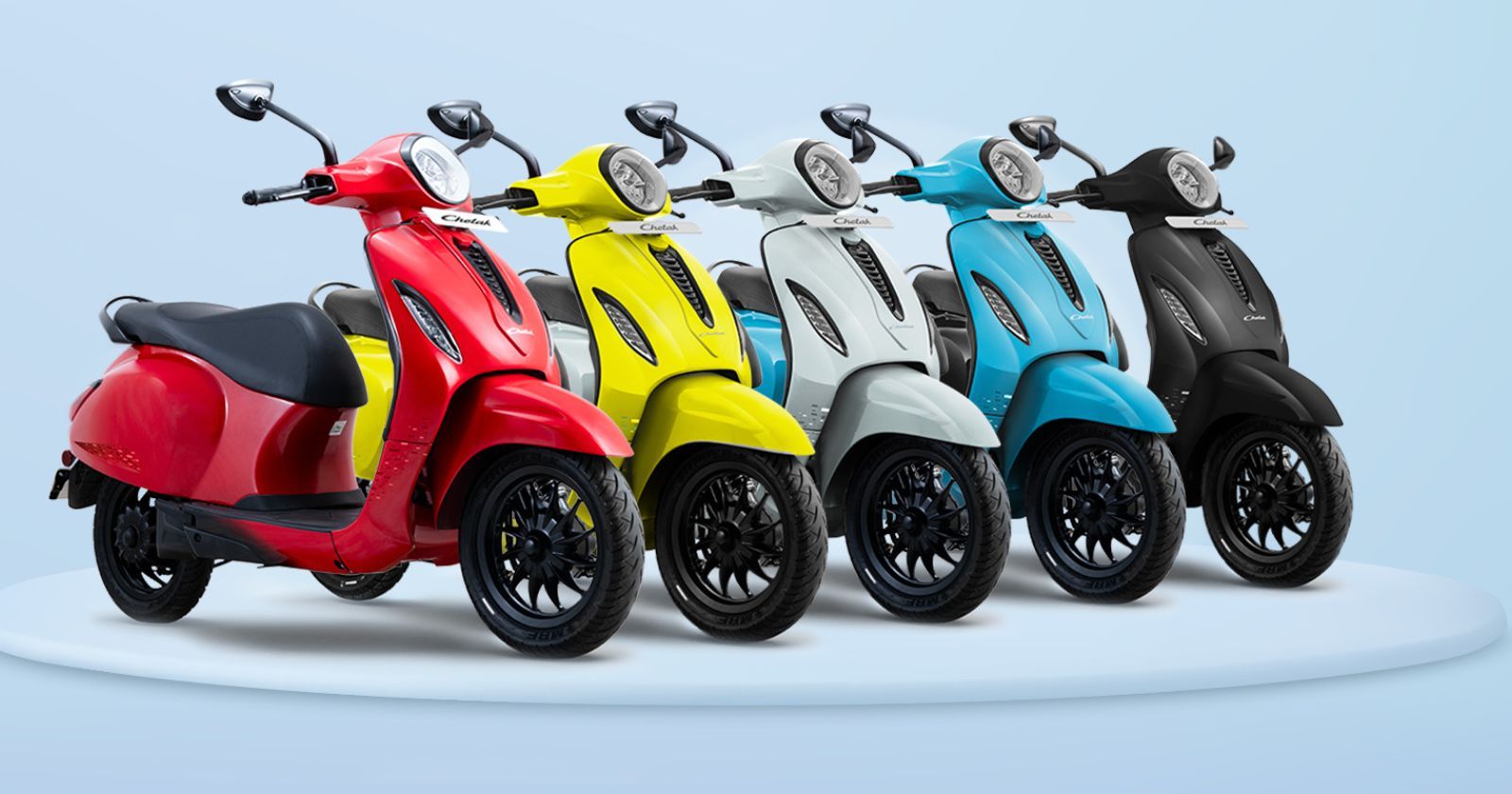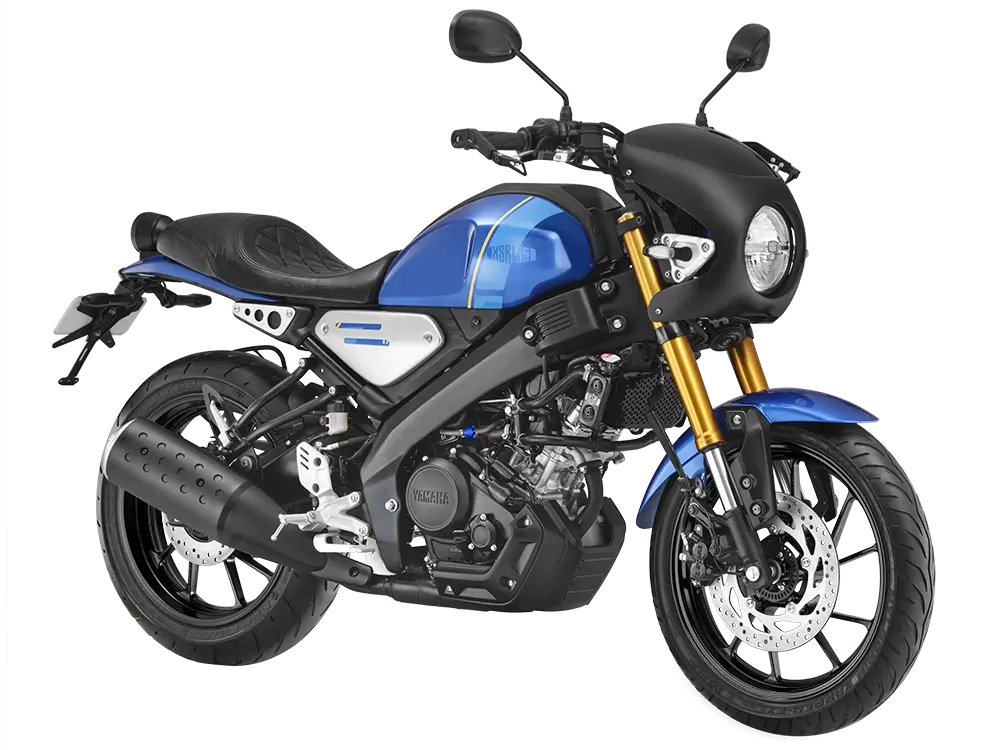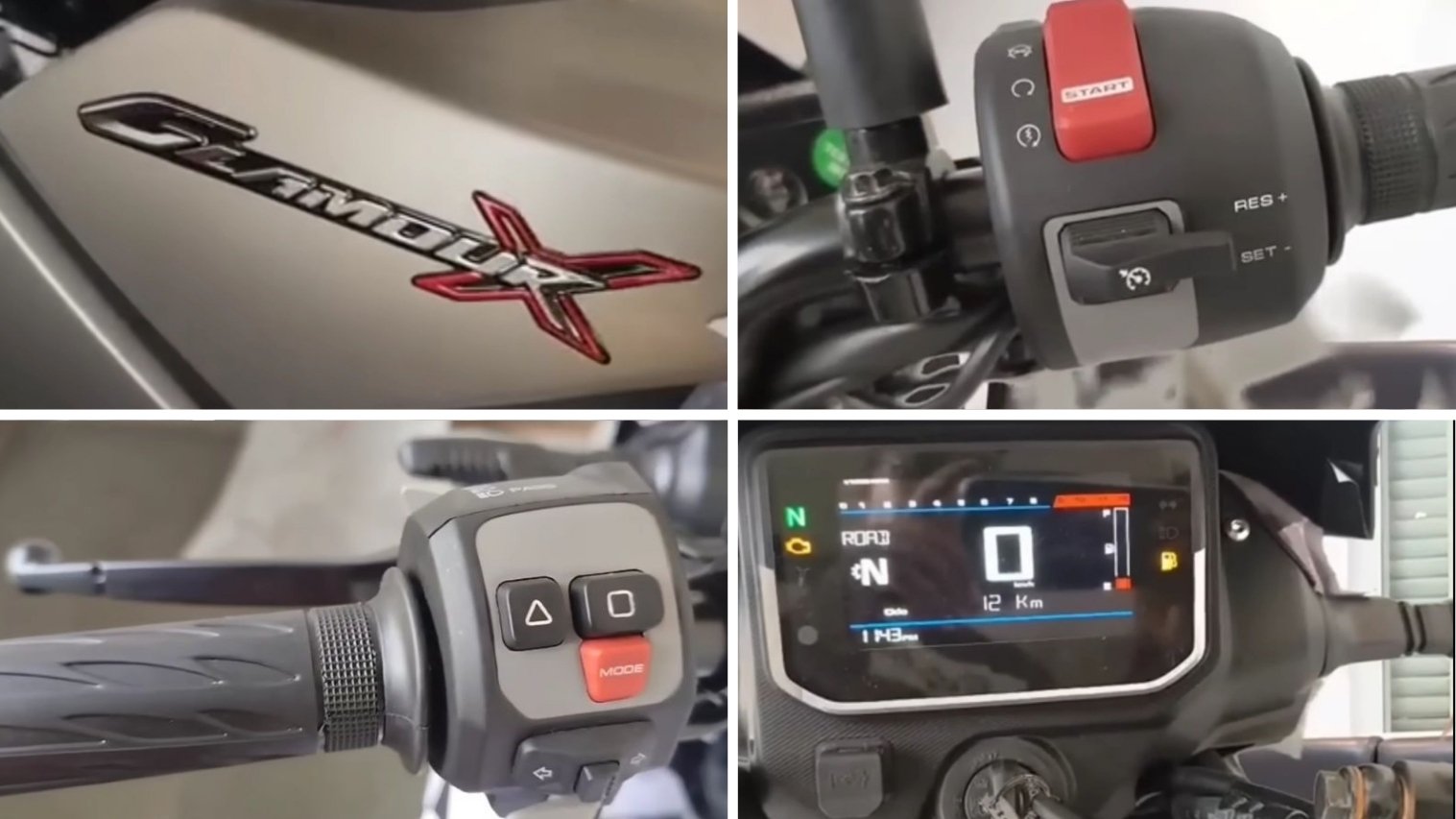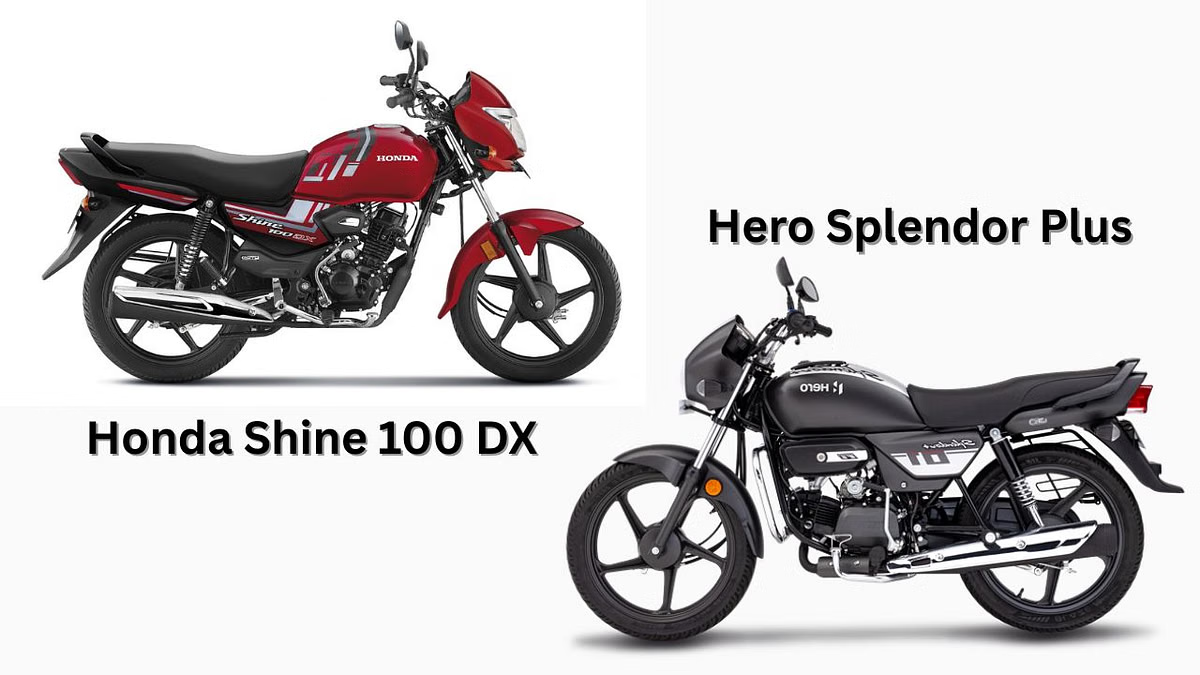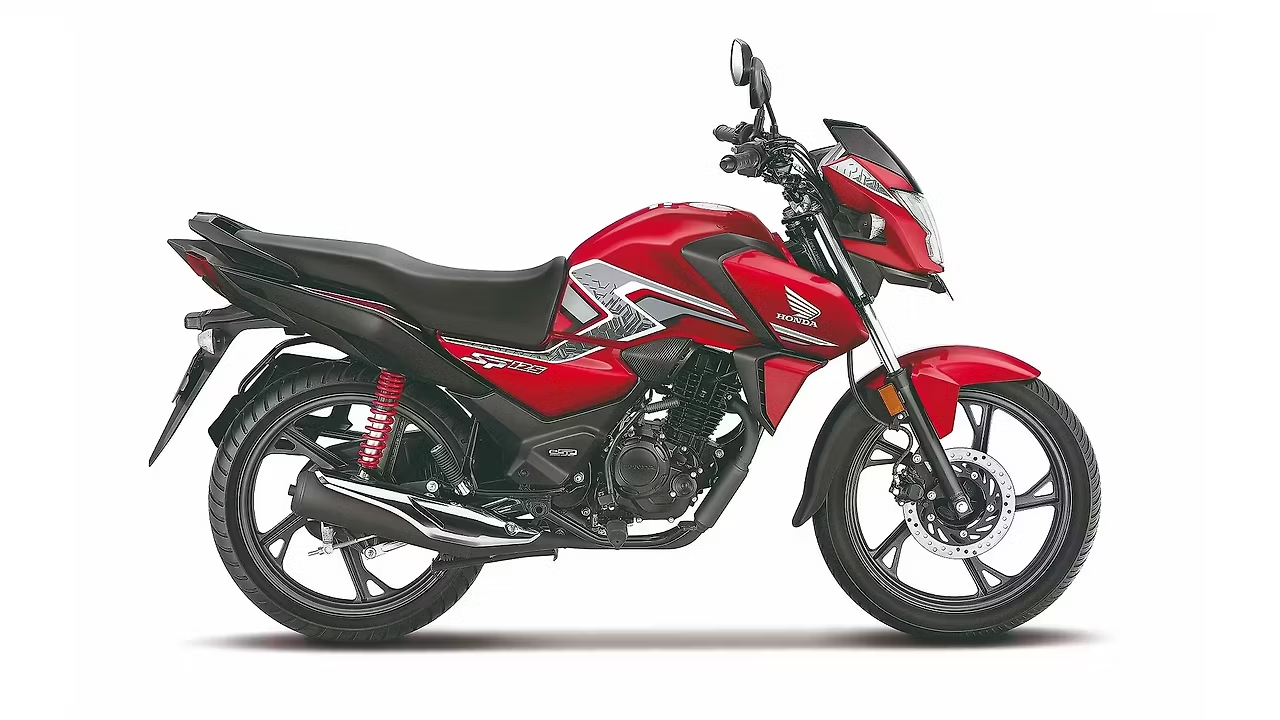MG4 Becomes First Mass-Market EV with Semi-Solid-State Battery; The MG4 sets a new benchmark in electric mobility by introducing semi-solid-state battery technology to the mass market. Offering a range of up to 537 km, faster charging, better cold-weather performance, and enhanced safety, the MG4 delivers cutting-edge innovation without a premium price tag.
MG4 Semi-Solid-State Battery Overview
| Specification | Details |
|---|---|
| Battery Type | Semi-solid-state lithium-ion (~5% liquid electrolyte) |
| Battery Supplier | Suzhou QingTao Power Technology |
| Energy Density | ~180 Wh/kg |
| CLTC-Claimed Range | Up to 537 km |
| Cold-Weather Range Loss | ~13.8% less drop vs. LFP batteries at –7 °C |
| Safety Certification | Passed 360° puncture safety test |
| Powertrain | 120 kW (161 hp) single rear electric motor |
| Launch Timeline | Debut in China August 2025, specs final by September |
Introduction
MG Motor, under the ownership of SAIC, has taken a bold step in electric vehicle innovation by introducing the MG4 as the first mass-market car to feature semi-solid-state battery technology. This move bridges the gap between traditional lithium-ion and future solid-state batteries, offering consumers a balance of safety, performance, and affordability. The development of semi-solid-state batteries has long been discussed in the automotive industry, but MG’s decision to bring it to an affordable, everyday model makes this a milestone for electric mobility.
Understanding Semi-Solid-State Batteries
A semi-solid-state battery uses a partially solid electrolyte combined with a small amount of liquid electrolyte—about 5% in this case. This design significantly improves safety by reducing the risk of overheating, puncture hazards, and fire incidents. While full solid-state batteries are still in development, the semi-solid design delivers many of their benefits without the current high manufacturing costs.
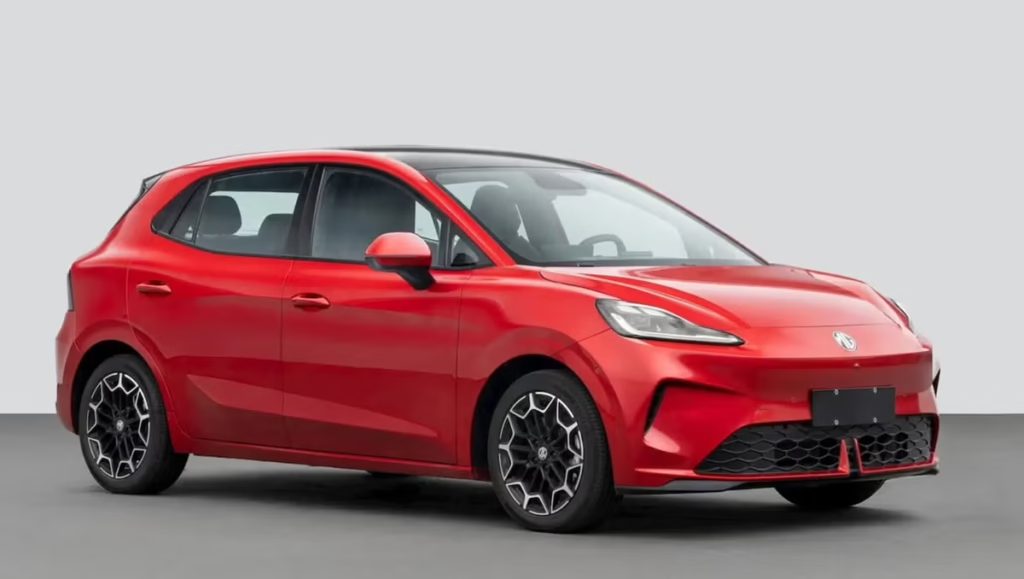
The energy density of MG4’s battery is around 180 Wh/kg. This is slightly lower than the highest-density lithium-ion batteries, but the trade-off comes with improved stability, safer temperature management, and longer life cycles. This technology also enables better performance in cold weather conditions, which has traditionally been a challenge for electric vehicles.
Performance and Driving Experience
The MG4 is powered by a 120 kW (161 hp) rear-mounted electric motor. This configuration delivers smooth acceleration, a quiet drive, and efficiency that makes it ideal for both city commuting and longer trips. Two battery configurations are expected—42.8 kWh and 53.9 kWh—with estimated ranges of approximately 437 km and 530 km under the CLTC testing cycle. The semi-solid-state version is projected to achieve up to 537 km in optimal conditions.
One of the standout benefits is the battery’s cold-weather performance. At temperatures around –7 °C, the MG4’s semi-solid battery suffers about 13.8% less range drop compared to standard lithium iron phosphate (LFP) batteries. This makes the MG4 a strong choice for drivers in colder regions.
Safety Enhancements
MG has emphasized safety throughout the development process. The semi-solid-state battery has passed a rigorous 360° puncture safety test, which simulates extreme accident scenarios. In these tests, the battery maintained stability without causing thermal runaway, making it significantly safer than many existing EV battery designs.
By incorporating a small amount of liquid electrolyte while relying mostly on solid materials, MG has found a balance between manufacturing feasibility and enhanced safety. This could set a precedent for other automakers looking to upgrade battery technology without dramatically increasing costs.
Pricing and Variants
MG’s pricing strategy is another reason the MG4 is attracting attention. The base version of the MG4 starts at around ¥73,800 (approximately $10,000 USD), making it one of the most affordable EVs with advanced battery technology. The semi-solid-state version is expected to be positioned slightly higher, between ¥80,000 and ¥120,000 (roughly $11,000 to $16,400 USD), depending on trim and features.
Available trims are expected to include Comfort, Ease, Freedom, and Smart, giving customers flexibility in balancing budget and features. Despite the advanced battery technology, MG aims to keep the vehicle accessible to a wide range of buyers.
Availability and Launch Plans
The MG4 with semi-solid-state battery technology will make its debut in China in August 2025, with final specifications to be confirmed in September. Deliveries are planned to begin later in the year, initially focusing on the Chinese market before considering expansion to international markets. If successful, the MG4 could pave the way for semi-solid-state adoption in other affordable EVs worldwide.
Industry Impact and Significance
Semi-solid-state technology has been considered a stepping stone toward full solid-state batteries for years. While premium brands such as BMW, Toyota, and Mercedes-Benz are investing heavily in solid-state research, MG has taken a more practical approach by implementing semi-solid-state technology today.
The MG4’s introduction could push competitors to accelerate their own development timelines, especially as consumers begin to demand higher safety and better performance in all weather conditions. By bringing this technology to a mass-market vehicle, MG has positioned itself as an industry disruptor rather than a follower.
Key Advantages of the MG4 Semi-Solid-State Battery
1. Improved Safety
Reduced flammability, better thermal stability, and proven performance in puncture tests make this battery safer than most lithium-ion designs.
2. Better Cold-Weather Performance
Less range loss in freezing conditions provides greater reliability for drivers in colder climates.
3. Affordable Implementation
Instead of waiting for costly full solid-state technology to become viable, MG has found a way to offer advanced battery performance at a budget-friendly price.
4. Market Accessibility
With prices starting near $10,000 USD, the MG4 is set to make advanced EV technology accessible to a wider audience than ever before.
Potential Challenges
Despite its advantages, the MG4 and its semi-solid-state battery face challenges. Production scalability will be crucial—manufacturing these batteries in large volumes without compromising quality is a complex task. Consumer education will also be necessary, as many buyers may not yet understand the benefits of semi-solid technology compared to lithium-ion or solid-state alternatives.
Additionally, while MG is debuting this model in China, entering competitive markets like Europe or North America will require compliance with different safety and performance regulations.
The Road Ahead
If the MG4’s launch is successful, it could trigger a shift in how automakers approach EV battery technology. Semi-solid-state batteries may become the preferred solution in the short to medium term, providing an ideal compromise between safety, performance, and cost until full solid-state batteries are ready for widespread adoption.
In the coming years, expect more vehicles to adopt variations of this technology. As production processes improve, energy density is likely to increase, costs will fall, and cold-weather efficiency will improve even further.
Final Thoughts
The MG4’s semi-solid-state battery debut is a landmark event for the EV industry. By combining improved safety, competitive range, and affordability, MG has created a compelling package for everyday drivers. While challenges remain in scaling production and educating the market, the MG4 represents a bold step toward the future of electric mobility. It shows that next-generation battery technology doesn’t have to remain out of reach for mainstream consumers. If the MG4 lives up to its promises, it could be remembered as the car that brought advanced battery technology to the masses.

RoolingWheels was born from a simple idea: the automotive world moves fast, and enthusiasts need a friendly, trustworthy place to follow that motion. Founded by JK, RoolingWheels combines hands-on experience, industry analysis, and unbiased reviews to help readers make smarter buying, maintenance, and lifestyle decisions. From the roar of combustion engines to the quiet hum of electric motors, we celebrate all forms of mobility.
